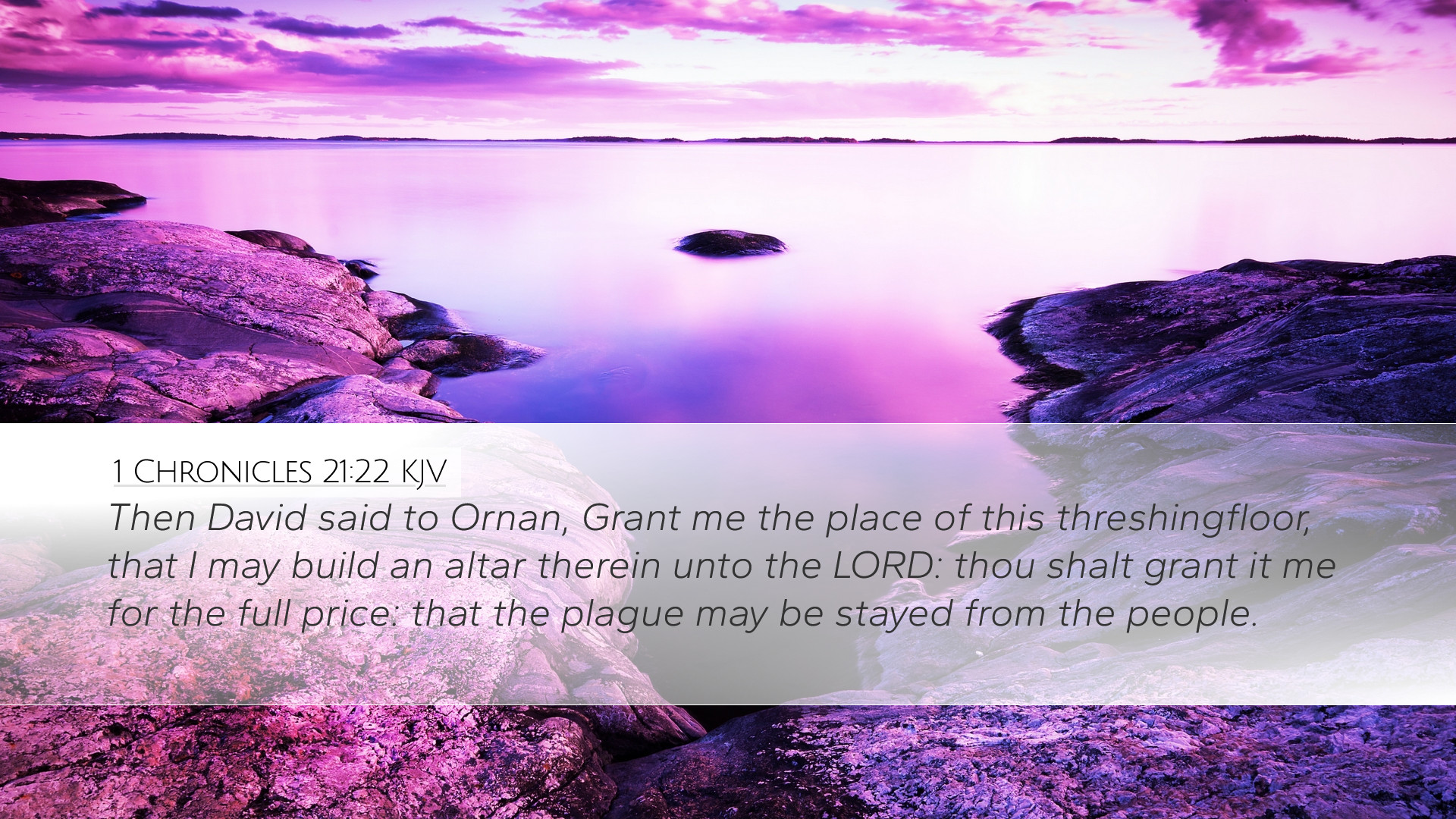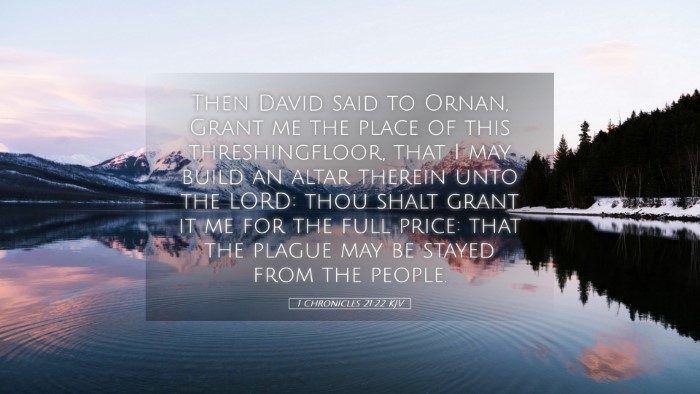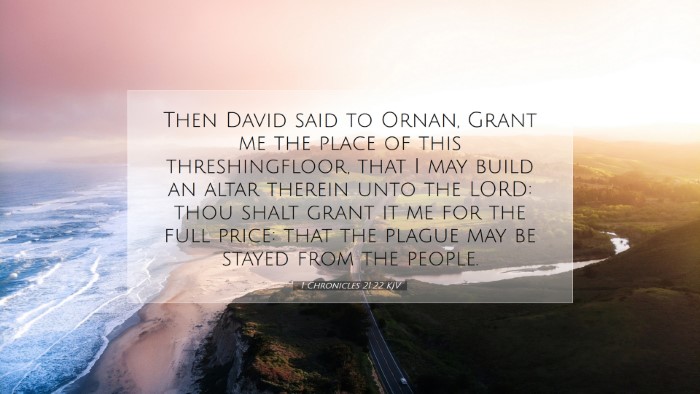Commentary on 1 Chronicles 21:22
Verse Text: "And David said to Ornan, 'Grant me the place of this threshing floor, that I may build an altar therein unto the LORD: and thou shalt grant it me for the full price: that the plague may be stayed from the people.'
Introduction
The narrative surrounding 1 Chronicles 21:22 offers rich theological and practical insights. This verse occurs in the larger context of David's sin in conducting a census and the consequent judgment from God. In this commentary, we will explore the significance of the threshing floor, the spirit of David's request, and the interplay of divine judgment and mercy.
Contextual Background
David's decision to enumerate Israel, viewed as an act of pride and a lack of trust in God's provision, brought about God's displeasure. The consequences, in the form of a pestilence, brought devastation among the people (1 Chronicles 21:14). David, recognizing his error, seeks to atone for his sin by building an altar to the LORD.
The Significance of the Threshing Floor
The threshing floor owned by Ornan (Araunah) plays a crucial role in this passage:
- Symbol of Judgment and Mercy: The threshing floor is not merely a location; it is a place of separation—where grain is threshed from chaff. Here, God’s judgment through the plague is met with David's pursuit of mercy through sacrifice.
- Fulfillment of Prophecy: This site ultimately becomes the location where Solomon builds the Temple, fulfilling God's promise to David about a house that would be established forever (2 Samuel 7:12-16).
David's Request to Ornan
David approaches Ornan with humility. His request reveals several important attitudes:
- Recognition of Need: David does not attempt to build an altar on a free basis. He understands that to atone for his sins, he must recognize the cost involved in true repentance.
- Integrity and Worship: David insists on paying the full price. This reflects his understanding that genuine worship and sacrifice require personal investment, both materially and spiritually.
The Theme of Sacrifice
David's proposition to purchase the site emphasizes the importance of sacrifice in worship. The act of offering to God must come from a place of sincerity, authenticity, and a willingness to give:
- The Cost of Discipleship: As Jesus taught, true discipleship comes with a cost (Luke 14:27). David's choice illustrates that approaching God demands a sincere sacrifice.
- Atonement through Sacrifice: David’s intention to build an altar signifies the importance of atonement. Just as the altar would be a site for sacrifices, believers today seek Christ's sacrifice as the ultimate atonement for sin.
Responses and Implications
Ornan's response further illuminates the humility and reverence expected in worship. When David requests the purchase, Ornan offers to give it freely, demonstrating generosity:
- Generosity in Offerings: This willingness to give freely is a reminder for believers not only to offer their material possessions but also their lives in service to God.
- God's Sovereignty in Human Affairs: Ornan’s threshing floor is a divine choice. God orchestrates events such that David’s need leads to the eventual establishment of a holy site that would serve generations to come.
Conclusion
1 Chronicles 21:22 serves as a potent reminder of the intertwining themes of sin, judgment, mercy, and sacrifice. David's determination to build an altar and Ornan's initial offers of generosity culminate in a foundational moment for the Israelite worship tradition:
- Learning from Failure: David's sin teaches that leadership carries spiritual weight, and failures must lead to genuine repentance and action toward restoration.
- Mercy through Sacrifice: The verse encapsulates the essence of worship—bringing our offerings to God with sincerity and integrity, recognizing the cost, and acknowledging His mercy.
In the rich tapestry of biblical theology, 1 Chronicles 21:22 invites pastors, theologians, and students alike to reflect on their approach to worship and their understanding of grace, cost, and connection with God.


